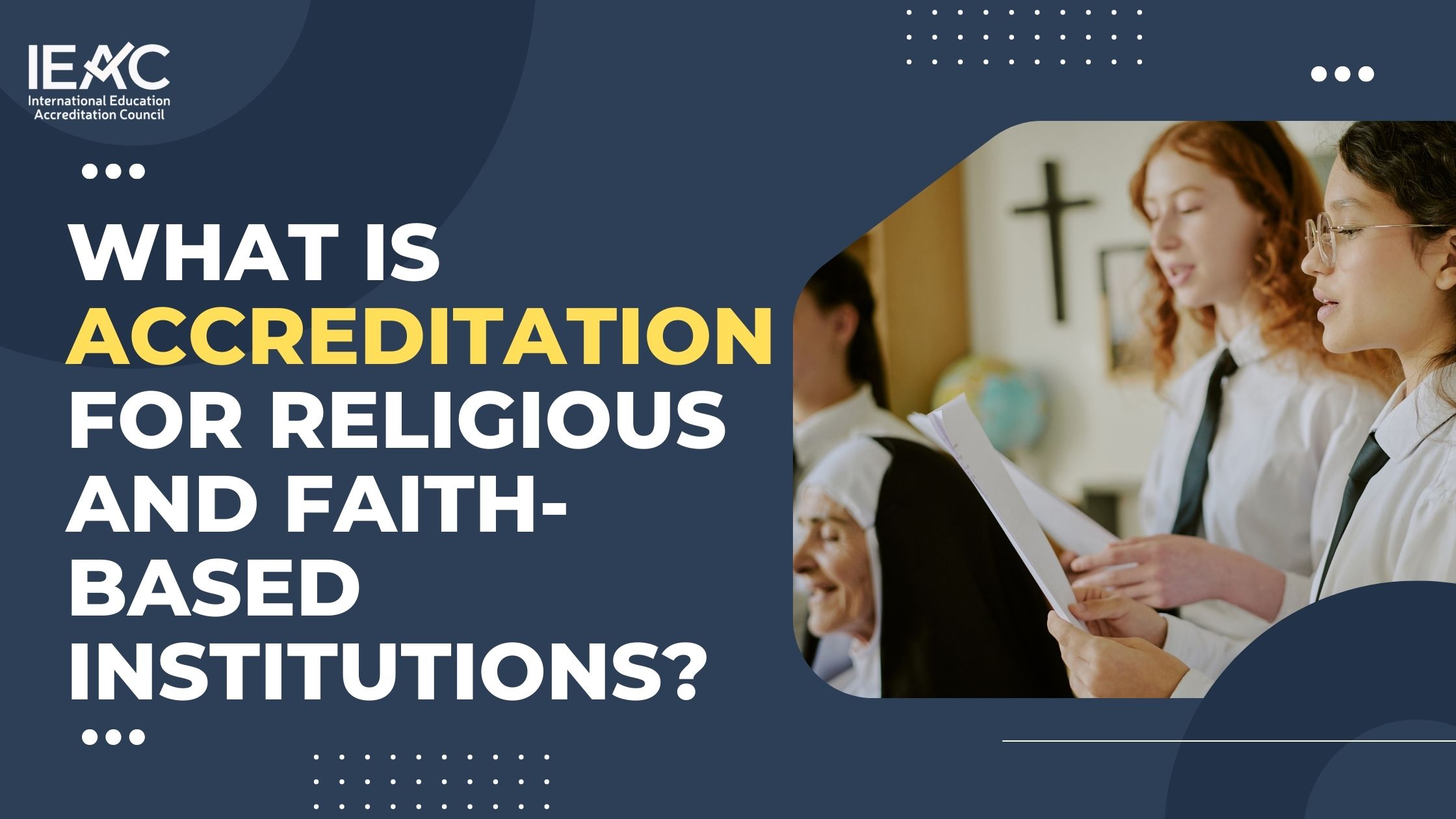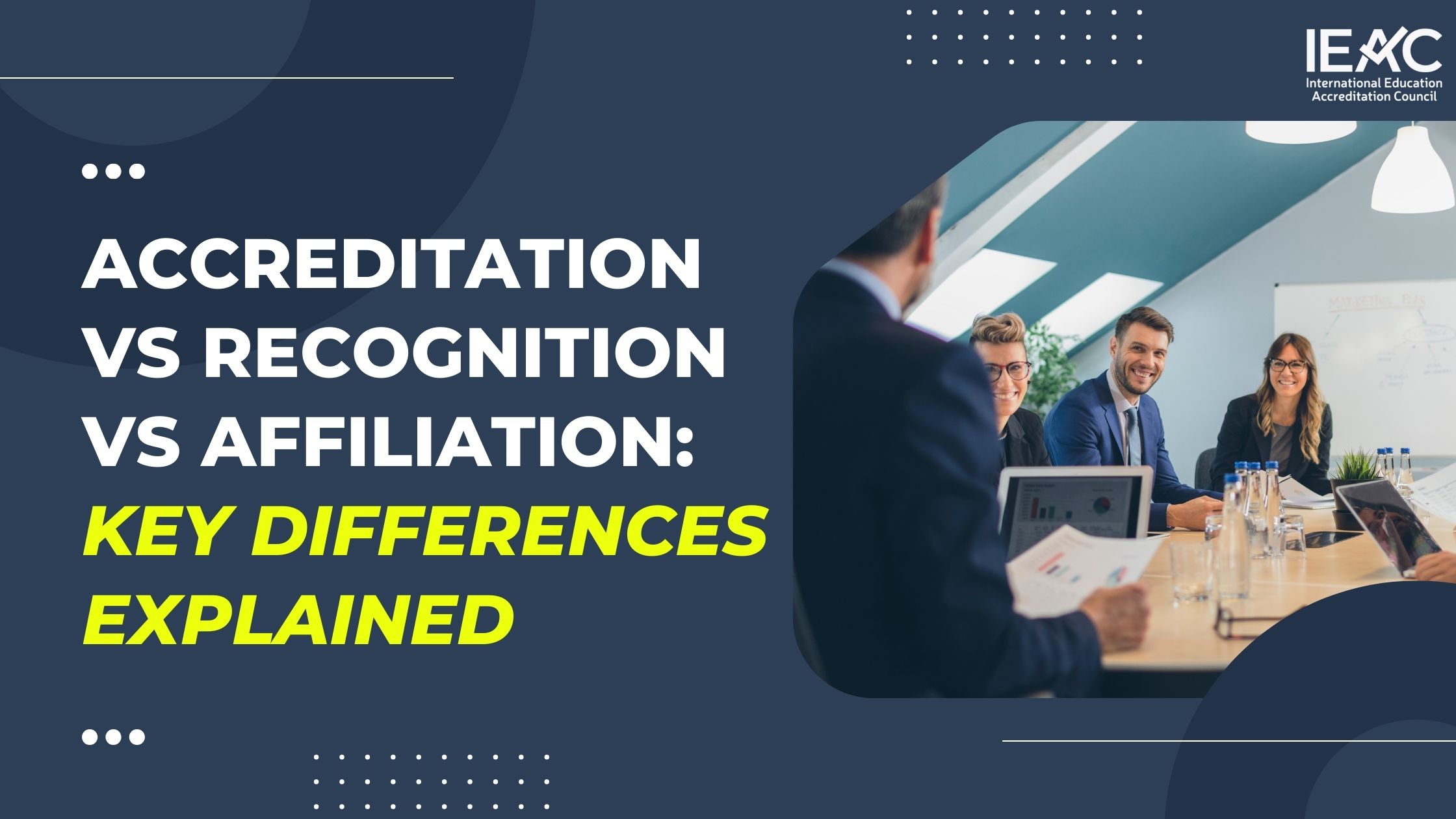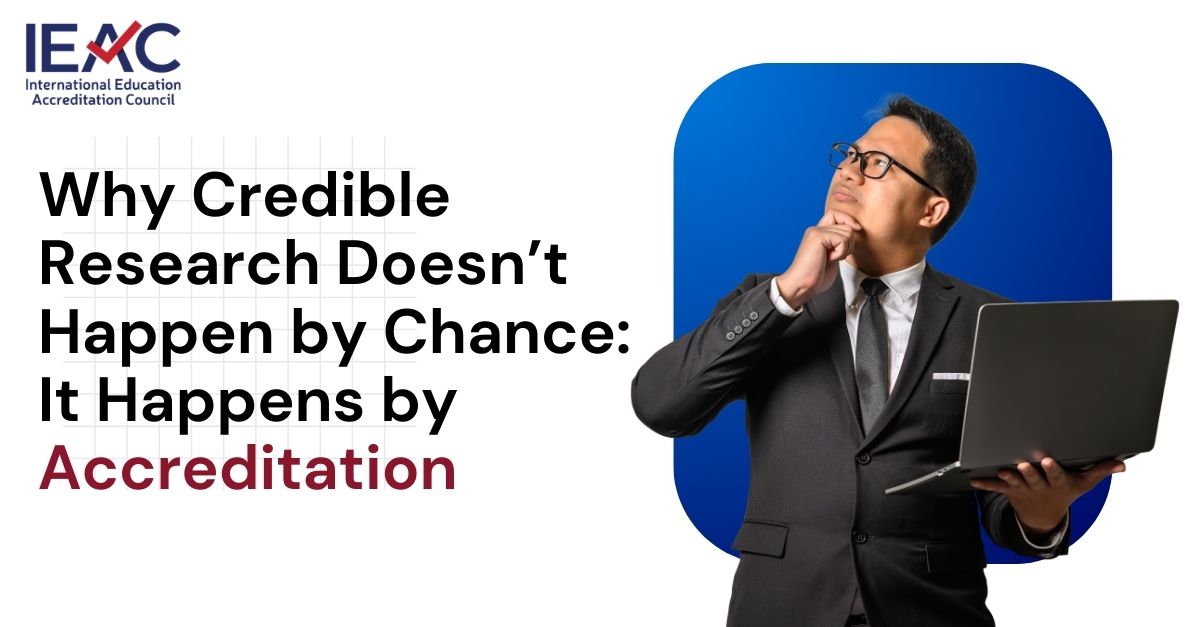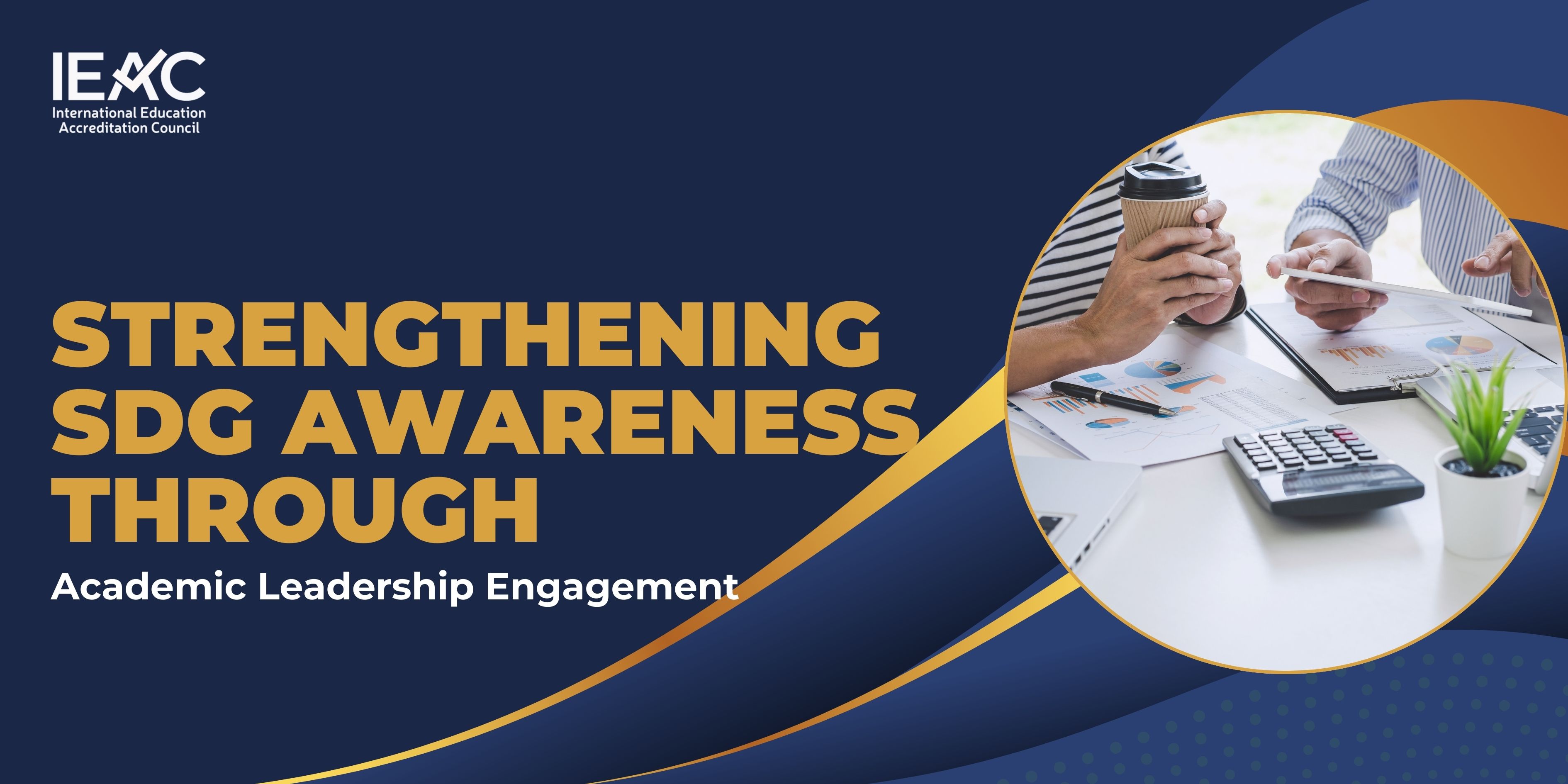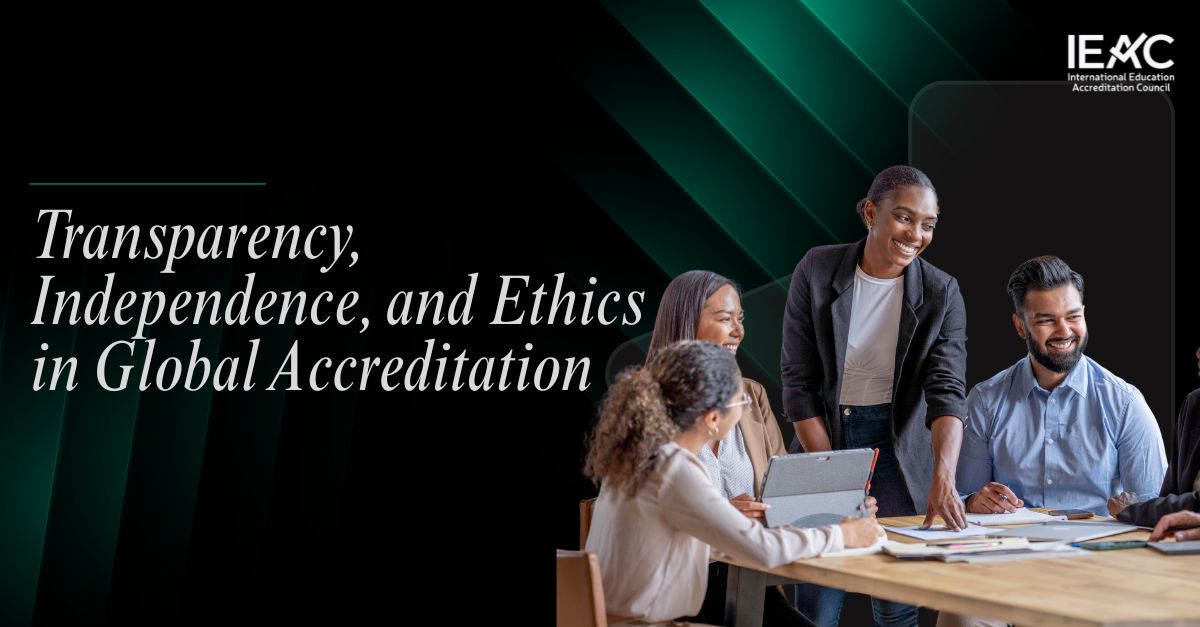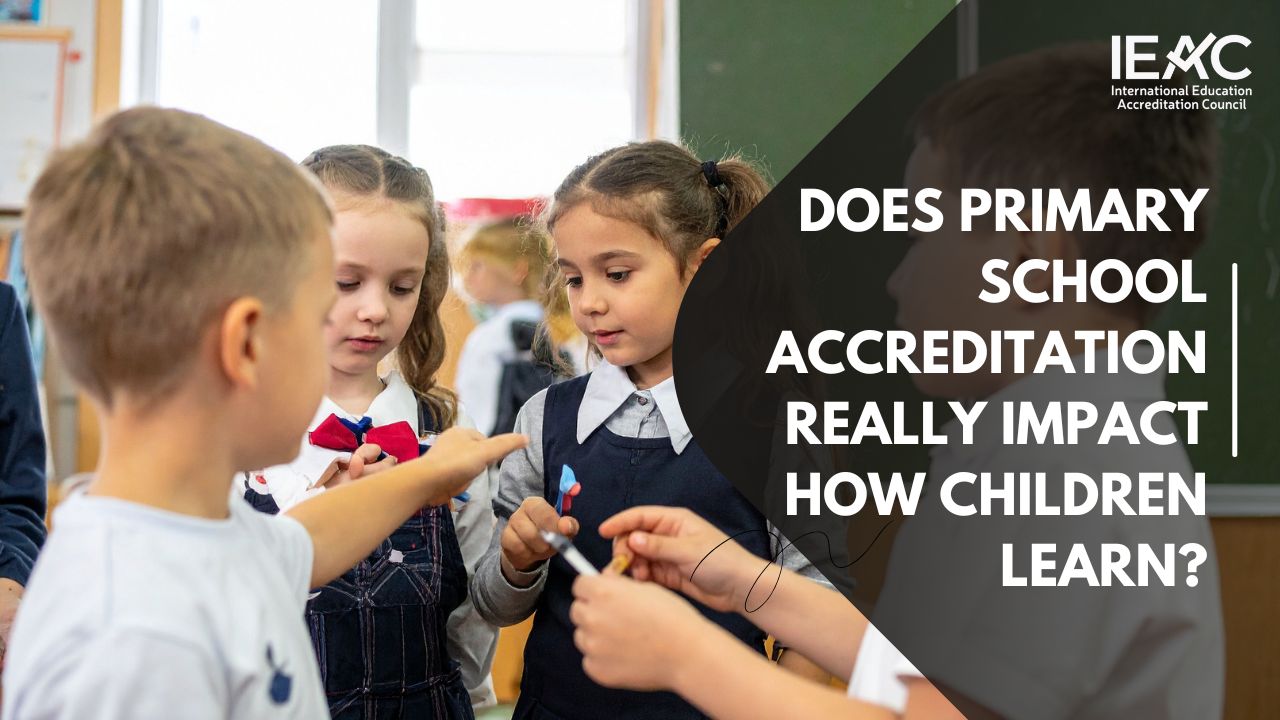- Home
- About IEAC
- Accreditation
- University Accreditation
- College Accreditation
- Online Institution Accreditation
- School Accreditation
- University Recruitment Agency Accreditation
- Programmatic Accreditation
- Teacher/ Lecturer Accreditation
- Religious Institutes Accreditation
- Affiliate Accreditation
- Research Accreditation Candidacy Accreditation
- IEAC Membership
- Institutions Accredited
- Accreditation Process
- Contact Us Webinar Apply Now
Blog
Accreditation and the Future of Learning: What 2030 Classrooms Will Expect?
Lorem ipsum dolor sit amet, consectetur adipiscing elit, sed do eiusmod tempor incididunt ut labore et dolore magna aliqua. Quis ipsum suspendisse ultrices gravida. Risus commodo viverra maecenas accumsan lacus vel facilisis.
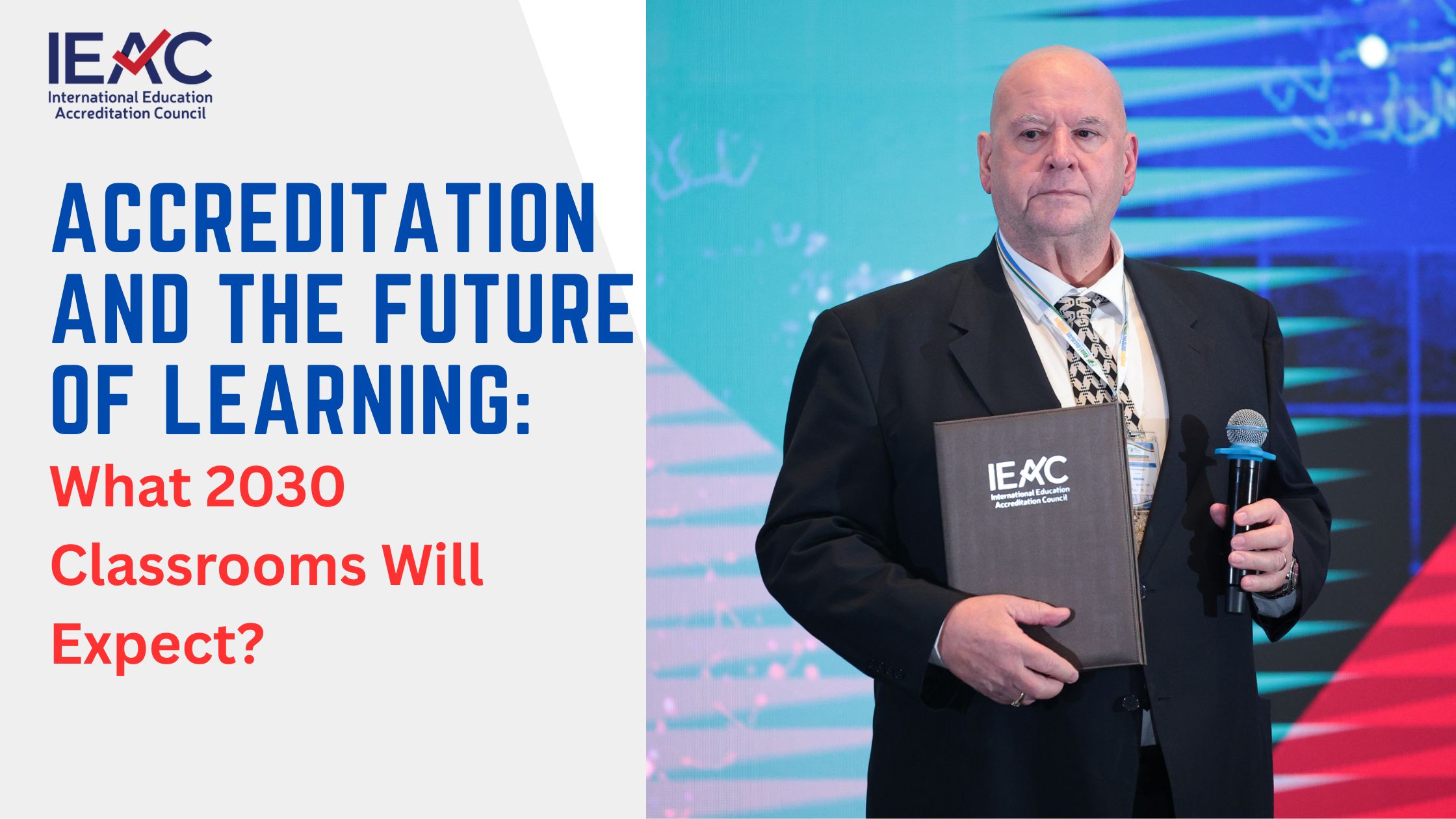
Accreditation and the Future of Learning: What 2030 Classrooms Will Expect?
The world of education is transforming faster than ever before. By 2030, the classroom as we know it will look, sound, and feel entirely different - not because walls will vanish, but because learning itself will evolve. Technology, globalisation, and sustainability are rewriting what it means to educate, and accreditation is quietly ensuring that no institution is left behind.
According to a World Economic Forum report, 85% of the jobs that will exist in 2030 haven’t been invented yet. This staggering projection reshapes the core question for educators: How do we prepare students for futures we can’t yet imagine?
The answer lies not in predicting the future, but in designing education systems agile enough to adapt to it and that’s precisely where accreditation plays a vital role.
The Tech Revolution in Learning: AI, AR, and Data-Driven Classrooms
In classrooms across the globe, technology is no longer a supplement — it’s an ecosystem. Artificial Intelligence (AI), Augmented Reality (AR), and data analytics are redefining how knowledge is delivered, absorbed, and applied.
AI-driven learning platforms can now identify a student’s learning pattern within minutes, personalising content and pacing. AR and VR tools are making abstract concepts tangible — turning history lessons into immersive experiences or enabling science experiments in virtual labs.
A 2024 HolonIQ report estimates that the global EdTech market will surpass $400 billion by 2030, reflecting the urgency of digital transformation in education. Schools are no longer competing on infrastructure, but on innovation readiness.
However, innovation without accountability risks creating uneven learning outcomes. Accreditation frameworks ensure that while institutions adopt new technologies, they also uphold ethical, pedagogical, and accessibility standards.
Accreditation helps schools answer key questions:
-
Are AI tools being used responsibly and inclusively?
-
Are digital learning platforms enhancing—not replacing—human connection?
-
Are schools protecting student data and digital rights?
Technology can empower, but only when guided by quality assurance. That’s why accreditation is the quiet force balancing innovation with integrity.
Evolving Pedagogies: From Content Delivery to Competency Development
The future classroom isn’t about what teachers teach — it’s about what students can do with what they learn.
Traditional memorisation-based models are giving way to competency-based education, where learning outcomes focus on skills, application, and problem-solving.
The OECD’s Education 2030 Framework highlights that the most valuable skills for the next generation will include critical thinking, collaboration, adaptability, and global citizenship. Accreditation systems are evolving to ensure these competencies are woven into curricula — not as optional modules, but as foundational learning outcomes.
Accredited institutions are reimagining pedagogy in ways that foster both intellectual and emotional intelligence. Project-based learning, flipped classrooms, and inquiry-driven models are becoming benchmarks of quality education.
For teachers, this evolution means moving from the role of “instructor” to “learning architect.” And accreditation supports that transition by setting standards for professional development, evidence-based teaching, and reflective practice.
In other words, accreditation doesn’t just evaluate schools — it empowers educators to evolve with their classrooms.
Digital Literacy and Sustainability: The New Pillars of Accreditation
As technology becomes inseparable from learning, digital literacy is no longer optional — it’s fundamental. UNESCO defines digital literacy as “the ability to access, manage, understand, integrate, and create information safely and ethically using digital technologies.”
Yet, digital literacy alone is not enough. The classrooms of 2030 must also cultivate sustainability literacy — the understanding that learning and living must align with global environmental and social goals.
The UN Sustainable Development Goal 4 (Quality Education) now includes commitments to “ensure inclusive and equitable quality education and promote lifelong learning opportunities for all.” Accreditation frameworks like those led by IEAC are integrating these principles into evaluation criteria, ensuring schools don’t just teach sustainability — they live it.
From energy-efficient campuses to eco-conscious curricula, accredited institutions are encouraged to measure their environmental impact and social responsibility. This alignment ensures that future graduates are not just employable, but ethical contributors to a shared planet.
Accreditation as a Bridge Between Innovation and Assurance
Innovation and assurance must coexist — and accreditation is the bridge that makes it possible.
By setting clear, dynamic standards, accreditation ensures that schools embracing EdTech, data analytics, or competency-based learning do so within a framework of accountability and continuous improvement.
Globally, parents and policymakers are looking beyond glossy brochures — they’re asking deeper questions:
-
Is this school future-ready?
-
Are teachers equipped for digital instruction?
-
How does technology translate to tangible student outcomes?
Accreditation answers those questions through transparent review processes, performance indicators, and capacity-building initiatives that focus on impact, not just intent.
IEAC’s Commitment to Future-Ready Education
At the International Education Accreditation Council (IEAC), accreditation is more than compliance — it’s a commitment to continuous evolution.
IEAC collaborates with institutions across continents to embed 21st-century competencies into their quality frameworks. Through robust evaluation, professional guidance, and global benchmarking, IEAC helps schools align with the fast-changing demands of the digital, inclusive, and sustainable education era.
To End With
By ensuring that schools integrate AI readiness, data ethics, teacher innovation, and sustainability goals, IEAC empowers them to prepare learners not just for today’s exams, but for tomorrow’s challenges. In doing so, IEAC redefines accreditation as both a mirror and a map — a reflection of where institutions stand and a guide to where the future of learning is headed.
Because by 2030, education will not only shape minds — it will shape the planet. The classrooms of tomorrow will be defined by adaptability, ethics, and innovation — and accreditation is the framework that ensures these qualities thrive together. As technology accelerates and global challenges intensify, the role of accreditation becomes clearer: to keep education human, relevant, and responsible.
At IEAC, we believe the future of learning isn’t waiting to happen — it’s already being accredited.
